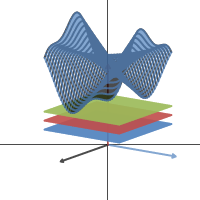BVC has established the Distributed Learning Committee (DLC), co-chaired by Russ Wilde and Elza Bruk. The DLC makes recommendations to the Vice President, Learning, regarding the innovative development of distributed learning consistent with the College's mandate, strategic plan, and comprehensive institutional plan. One of the first major activities of the DLC is the Distributed Learning Business Processes Project.
One objective of the Distributed Learning Business Processes Project is to develop an integrated distributed learning strategy for the college. The first phase of that project was to survey and interview the coordinators of all program areas that have components related to distributed learning. Departments surveyed include Center for Excellence in Foundational Learning, Centre for Excellence for Immigrant and Intercultural Advancement, School of Business, School of Health, Justice and Human Services, Learning Resource Services, Learner Success Services, Registrar’s Office, Information Technology Services, International Education, and Regional Stewardship. I interviewed our department’s coordinators and a summary of the results is included in Dr. Dean Wood's report entitled "Distributed Learning Business Processes at Bow Valley College."
My role as Key Contact is to provide regular communication to the department head and the department about the project, to conduct surveys and interviews, be interviewed with Dr. Keith Seel by the project consultant, Dr. Dean Wood, regarding the information gathered from the surveys and interviews, and to fulfil other responsibilities related to the DLC.
The report defines distributed learning as “an instructional model which utilizes specialized design and delivery processes so that instruction and learning can occur without instructors and learners necessarily being together at the same place and/or time” (Wood, 2013). This is a broad definition that encompasses students watching YouTube videos at home, reading a textbook in the LLC, working on a project together, watching a lesson remotely in an RTOL class, and working on an ATOL simulated laboratory. By this definition, virtually every program area in our department has some aspect of distributed learning.
The report makes fourteen specific recommendations including “the need for strategic thinking and planning for distributed learning; increased and streamlined technology support for learners, instructors, and staff; increased and coordinated support for learners; the need for increased coordination of and efficiency in business processes; role clarification for the committees and teams involved in distributed learning; the benefits of the College’s continuing commitment to eCampusAlberta; and the need for increased human and financial resources albeit in a challenging environment” (Wood, 2013).
At this point, the committee is working on “establishing sub-committees to work on specific recommendations” (R. Wilde & E. Bruk, personal communication, October 21, 2013). I look forward to continuing to contribute to the committee’s research and other efforts to integrate the development and delivery of distributed instruction at Bow Valley College.
The report is an internal document, however, if you would like to see a copy of the report, or have any questions about the role of the DLC, please contact me at mgaschnitz@bowvalleycollege.ca.
Regards,
Michael Gaschnitz
References
Wood, Dean (2013). Distributed Learning Business Processes at Bow Valley College: A Report Prepared for the Distributed Learning Committee.




.JPG)






